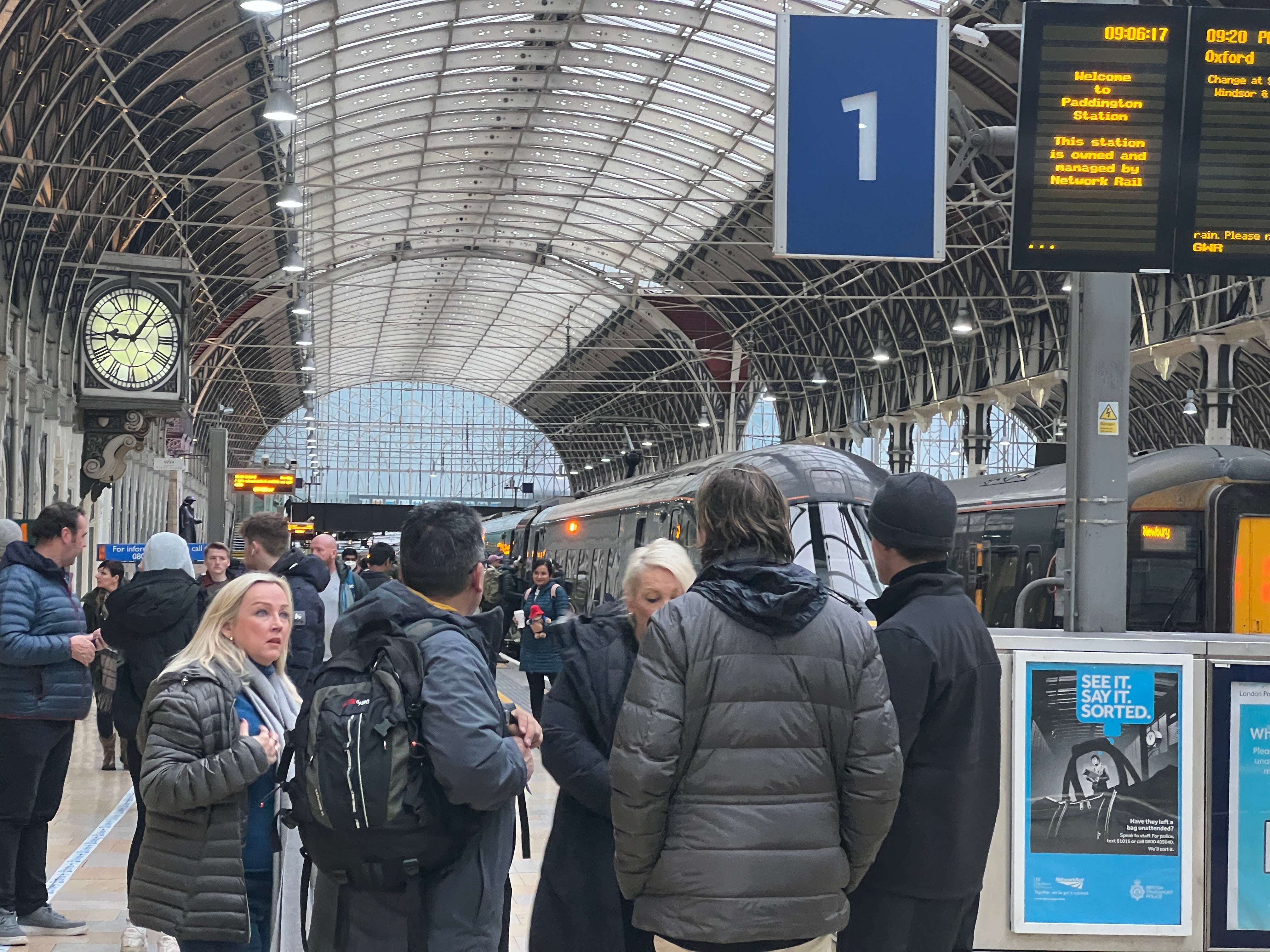All the rail strikes, staff shortages and engineering works causing train cancellations today
Great Western Railway, West Midlands Trains and London Northwestern Railway hit by walkouts

As the most chaotic year for rail passengers since the 1980s staggers to a conclusion, tens of thousands of train travellers face disruption caused by a combination of regional rail strikes, a national overtime ban and staff shortage on 28 December.
In addition, planned engineering works are affecting key routes and stations, while unplanned technical problems are leading to further cancellations.
Members of the white-collar TSSA union are striking at Great Western Railway (GWR), West Midlands Trains and London Northwestern Railway for 24 hours from 12 noon on Wednesday.
Together with the current RMT overtime ban – which lasts until the next national rail strike begins on 3 January – GWR warns: “Trains will be disrupted with a significantly reduced level of service throughout the day.”
The train firm, which connects South Wales and the West of England with London Paddington, says: “Trains are expected to be very busy. Please check your journey before you travel, especially if travelling late at night, with some short-notice alterations or cancellations likely.”
All sleeper trains are cancelled until 8 January at the earliest.
The TSSA strike has caused the cancellation of all West Midlands Trains and London Northwestern Railway services on Wednesday and Thursday.
Travellers’ problems in the Midlands are exacerbated by the complete shutdown of the Chiltern Railways network north of Banbury until 9 January.
Chiltern warns passengers: “We advise customers to only travel if absolutely essential throughout the whole period of industrial action.”
The warning is echoed by Network Rail at London Euston, which is telling travellers: “Industrial action means rail travel will be significantly disrupted throughout December and January.”
The West Coast main line, which connects Euston with the West Midlands, northwest England, North Wales and southern Scotland, is currently subject to a wide range of engineering projects. Passengers are warned to expect longer journeys.
The link between Rugby and Milton Keynes is closed, with bus replacements operating.
Avanti West Coast has added some Euston-Milton Keynes shuttles, but has also cancelled a number of later services due to crew shortage.
On the East Coast main line, which connects London King’s Cross with Yorkshire, northeast England and Scotland, engineering work at York is extending travel times with some destinations unserved by train until the New Year.
Grand Central has cancelled its afternoon train from London to Bradford due to “more trains than usual needing repairs at the same time”. The earlier service to Bradford ended its journey at Wakefield “due to a train fault”.
The low-cost London-Edinburgh service, Lumo, suffered network-wide problems on Tuesday, and is seeking to get passengers where they need to be on Wednesday.
The company’s service delivery director, Jen Clare, tweeted: “The team will be on hand to support all day. Thank you again for your understanding, we appreciate it!”
Meanwhile, more than 40,000 workers across Network Rail and 14 train operating companies will walk out in early January.
The strike is taking place on 3, 4, 6 and 7 January. The train drivers’ union, Aslef, has called an additional national strike on Thursday 5 January.
The latest round of the strike by UK Border Force has also begun, with members of the PCS union who normally check passports walking out at six UK airports and one port.
None of the airports – Heathrow, Gatwick, Manchester, Birmingham, Glasgow or Cardiff – is reporting any problems.
A spokesperson for Heathrow, the busiest airport in Britain, said: “Operations continue to run smoothly and the airport is operating as normal. The immigration halls are free flowing with Border Force and the military contingency providing a good level of service for arriving passengers.”
Glasgow airport’s spokesperson said: “We do not anticipate any significant challenges for passengers travelling through international arrivals as a result of the industrial action being taken by Border Force staff. “
At Newhaven in East Sussex, the only UK port affected, DFDS has delayed the morning departure to Dieppe by an hour. But this is “due to the adverse weather” rather than the strike.
Join our commenting forum
Join thought-provoking conversations, follow other Independent readers and see their replies
0Comments